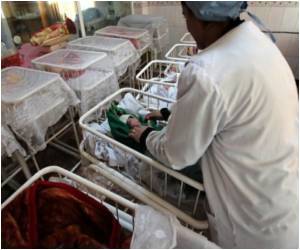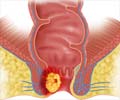Episiotomy is a controversial surgical procedure performed during child delivery.

Episiotomy consists in an oblique cut of the perineum, tangential to the anal sphincter muscle, to facilitate birth and avoid spontaneous lacerations that are more difficult to suture. Its application ranges from 8% of vaginal births in Scandinavian Countries to 40-50% in Mediterranean countries, to 80-90% in Latin America and East European Countries.
Depending on the innervation modality of the individual sphincter muscle, episiotomy might damage its innervation and weaken its voluntary control possibly resulting in fecal incontinence at later times. Preliminary knowledge of the individual sphincter innervation modality, made available by the technique developed at Politecnico di Torino, Italy, partially within a European Project, provides the obstetrician with the information needed to decide if and how episiotomy should be performed and evaluate the risks involved. The system has been tested on 250 women(82 receiving episiotomy) in 10 EU countries.
Source-Eurekalert
 MEDINDIA
MEDINDIA



 Email
Email







